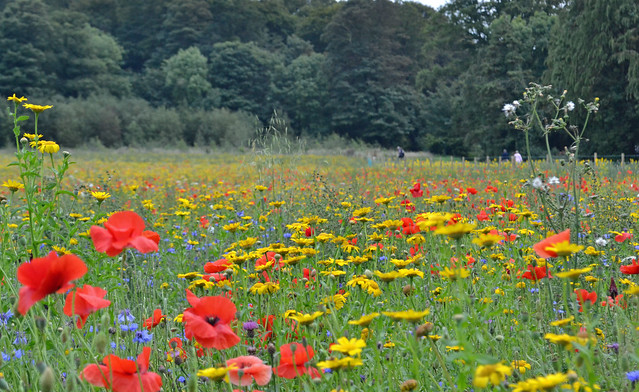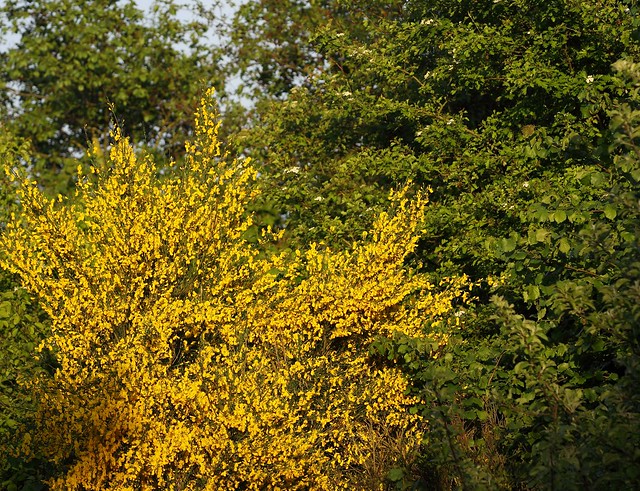In this post we’re looking into words for flour and related things in Celtic languages.
| Proto-Celtic | *mlātos = flour |
|---|---|
| Gaulish | *blatos = flour |
| Proto-Brythonic | *blọd = flour |
| Middle Welsh (Kymraec) | blawd, blaỼt = flour |
| Welsh (Cymraeg) | blawd = flour, meal, powder blawdaidd = mealy, floury, friable blodiaf, blawdiaf, blawdio = to grind into meal, produce flour, become powdery, turn to dust, sprinkle (with) flour blodiwr, blawdiwr = flour or meal merchant |
| Old Cornish | blot = flour, meal |
| Middle Cornish (Cernewec) | blot, blês = flour, meal |
| Cornish (Kernewek) | bleus = flour bleus hesken = sawdust bleus leun = wholemeal bleusa = to flour |
| Old Breton (Brethonoc) | blot = flour |
| Middle Breton (Brezonec) | bleut = flour, powder |
| Breton (Brezhoneg) | bleud = flour, powder bleudañ = to flour bleudek = floury bleud brazed = wholemeal flour bleud goellet = self-raising flour bleud gwinizh = wheat flour |
Etymology: from the Proto-Indo-European *ml̥h₂-tó-s, from *melh₂- (to crush, grind) [source]. Words from the same root include melancholy and melanin in English, and μελανός (melanós – black, dark, blue, bruised) in Greek [source].
| Old Irish (Góidelc) | men = flour |
|---|---|
| Middle Irish (Gaoidhealg) | men, min = flour, meal, fine powder, dust |
| Irish (Gaeilge) | min [ˈmʲɪnʲ/ˈmʲɨ̞nʲ] = meal; powedered matter min choirce = oatmeal min chruithneachta = wheatmeal min sáibh = sawdust |
| Scottish Gaelic (Gàidhlig) | min [min] = flour, meal, grounds, filings min-fhlùir = flour min-eòrna = barley flour/meal min-sheagail = rye flour min-chruithneachd = wheat flour muileann-mine = flour mill |
| Manx (Gaelg) | meinn = meal meinn chorkey = oatmeal meinn churnaght = wheatmeal flour meinn hoggyl = rye meal meinn oarn = barley meal meinn saaue = sawdust |
Etymology: unknown
| Middle Welsh (Kymraec) | peyllyeyt, peillit = flour |
|---|---|
| Welsh (Cymraeg) | paill = pollen, flour peill(i)aid = flour, fine flour, wheat flour, white flour, powder peilliaid gwenith = (fine) wheat flour peilliaid haidd = barley flour peilliaid rhyg = rye flour |
Etymology: from the Latin pollen (fine flower, powder, dust), from the Proto-Indo-European *pel- (flour, dust) [source].
Words from the same roots, via the Latin pulvis (dust, powder, ashes), include polve (dust, ashes) in Italian, polvo (dust, powder) in Spanish, poussière (dust) in French, and pulverise (to render into dust or powder) in English [source].
| Irish (Gaeilge) | plúr [pˠlˠuːɾˠ] = flour, flower plúr geal = white flour plúr cruithneachta = wheaten flour plúrach = floury, farinaceous; flower-like, pretty plúraigh = to effloresce plúróg = pretty girl plúrscoth = choicest flower, pick, choice plúrú = efflorescence |
|---|---|
| Scottish Gaelic (Gàidhlig) | flùr [fl̪ˠuːr] = flour flùr lom = plain flour flùr-éirigh = self-raising flour |
| Manx (Gaelg) | flooyr = flour flooyr churnaght = wheaten flour grine-flooyr = cornflour |
| Middle Welsh (Kymraec) | fflwr = flour |
| Welsh (Cymraeg) | fflŵr [fluːr], fflowr = flour (in South Wales) fflŵr can = wheat flour |
Etymology: from the Anglo-Norman flur (flower), from the Old French flor (flower), from the Latin flōrem (flower), from flōs (flower, blossom), from Proto-Italic *flōs (flower, blossom), from Proto-Indo-European *bʰleh₃- (flower, blossom) [source].
Words from the same PIE roots include flour, flower, flora, blossom and bloom in English, blé (flour) and fleur (flower) in French, and blat (wheat) in Catalan [source].
Words marked with a * are reconstructions.
Sources: Wiktionary, Am Faclair Beag, Online Manx Dictionary, Teanglann.ie, eDIL – Electronic Dictionary of the Irish Language, In Dúil Bélrai English – Old Irish glossary, Geiriadur Prifysgol Cymru, Gerlyver Kernewek, Dictionaire Favereau, TermOfis, English – ProtoCeltic WordList (PDF), Etymological Dictionary Of Proto Celtic












